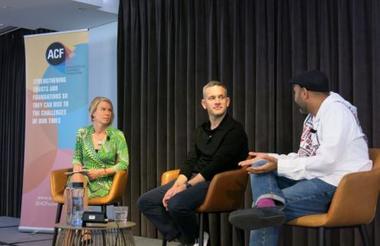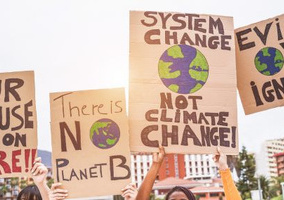Foundations and trusts need to take more risks to address climate change issues, attendees at the Association of Charitable Foundations’ (ACF) annual conference heard yesterday.
Julia King, Baroness Brown of Cambridge, also said that foundations should have some funds dedicated to addressing climate change issues.
She said there is an “enormous risk” that the foundation sector is being too cautious by focusing so heavily on the governance of funding recipients.
“I'm not suggesting you shouldn't have good governance, but have some funds where you are prepared to take more risk because there is a real chance of accelerating progress.
“The speed at which we need to make change is a justification that we have to take more risk. The risk is that climate change happens.”
Climate change affects every aspect of people’s lives and society as a whole, King said. And climate change disproportionately affects vulnerable communities such as low-income groups, the elderly and people with ill health, she added.
King also said the sector should focus on generating greater public support for the issue.
“We have got to get the public on board with this,” she said. “They've got to understand this is about creating a better future. It's about creating better jobs.”
A different approach to address climate change
The impact of climate change and efforts in tackling the issue, such as the transition to electric vehicles or eco-friendly products in supermarkets – which tend to be more expensive for consumers – are “really distant” for people to relate to when they are struggling to get through the week financially, said Roger Harding, director of Round Our Way, in a panel discussion.
Round Our Way aims to highlight the impact of climate change on local communities and working-class people.
Harding said it approaches climate change from a practical perspective, showing people how climate change could cause flooding, create more potholes, inflate the price of food and harm the wellbeing of pets.
Kamran Shezad, director of Islamic Foundation for Ecology and Environmental Sciences, echoed Harding’s sentiment.
Shezad said climate change is a difficult topic for communities to understand and relate to when experts convey their message through scientific jargon.
Communities will understand better “when you talk to them from a job perspective, when you talk to them from their children's perspective, when you talk to them from a health perspective”, Shezad said.
Harding said the third sector plays an important role in providing services to beneficiaries, but their work is going to be harder as the impact of climate change will impinge upon those services.
He added that the sector also needs to work with local communities to build trust and counter the efforts of some people who use climate change to create division.
Related articles












